Directed by Ridley Scott, Gladiator is an epic historical drama that combines breathtaking spectacle, a compelling story of revenge and redemption, and unforgettable performances. Released in 2000, the film revitalized the sword-and-sandal genre and won five Academy Awards, including Best Picture and Best Actor for Russell Crowe.
Plot Overview
Set in the waning days of the Roman Empire, the film follows General Maximus Decimus Meridius (Russell Crowe), a loyal and skilled leader betrayed by Commodus (Joaquin Phoenix), the ambitious son of Emperor Marcus Aurelius. After narrowly escaping execution and being enslaved, Maximus rises through the ranks as a gladiator, seeking revenge against Commodus and justice for his murdered family.
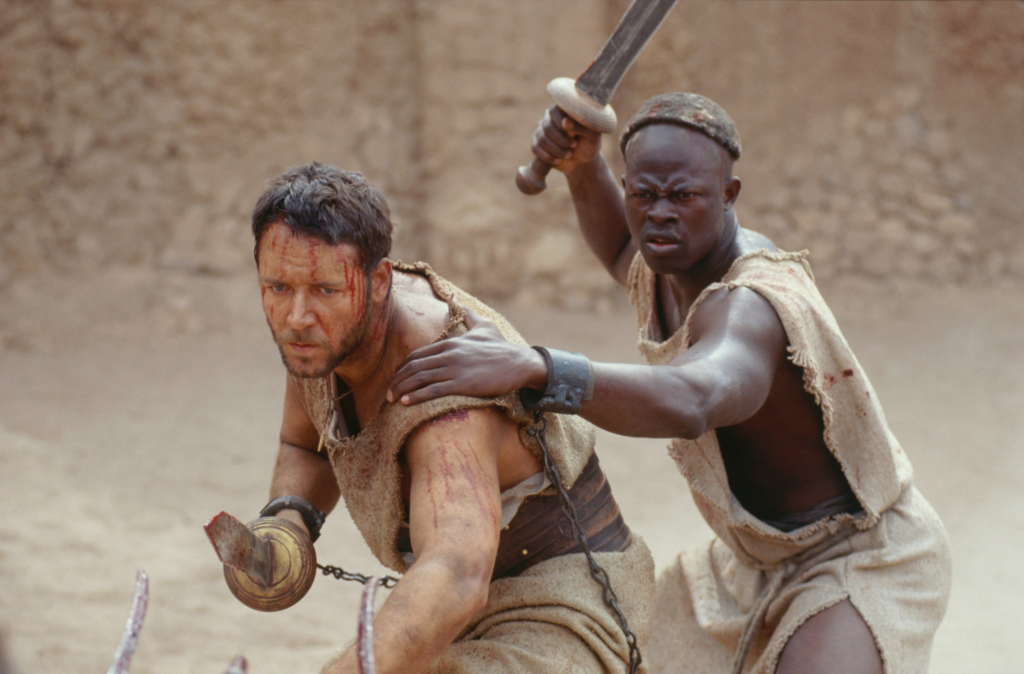
Strengths
1. Russell Crowe’s Powerful Performance
Crowe brings depth and intensity to Maximus, portraying him as a man torn between his desire for vengeance and his sense of honor. His commanding presence and raw emotional power make Maximus a timeless hero.
2. Joaquin Phoenix’s Villainous Commodus

Phoenix delivers a chilling portrayal of Commodus, a deeply insecure and morally corrupt antagonist. His layered performance ensures Commodus is more than a caricature, portraying him as both detestable and pitiable.
3. Ridley Scott’s Direction
Ridley Scott creates a visually stunning and immersive world, from the grandeur of Rome to the visceral brutality of the Colosseum. His meticulous attention to detail and masterful pacing elevate the film beyond standard historical dramas.
4. Epic Action Sequences

The gladiatorial battles are intense and visceral, with a sense of scale and spectacle that feels both grand and grounded. The choreography, combined with Scott’s dynamic direction, ensures these scenes are thrilling and emotionally charged.
5. Hans Zimmer’s Score
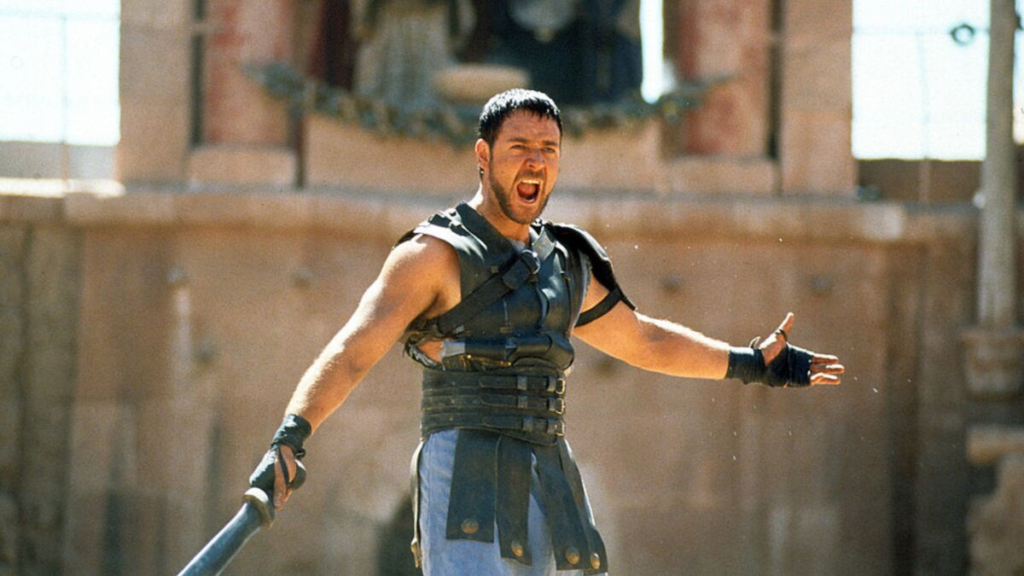
Zimmer’s sweeping, emotionally resonant score is iconic, particularly the hauntingly beautiful “Now We Are Free.” The music amplifies the film’s grandeur and emotional weight.
6. Themes of Honor and Legacy
At its core, Gladiator is a story about the enduring power of integrity, loyalty, and the pursuit of justice. Maximus’s journey resonates because of its universal themes, making his struggle relatable despite the historical setting.
Weaknesses
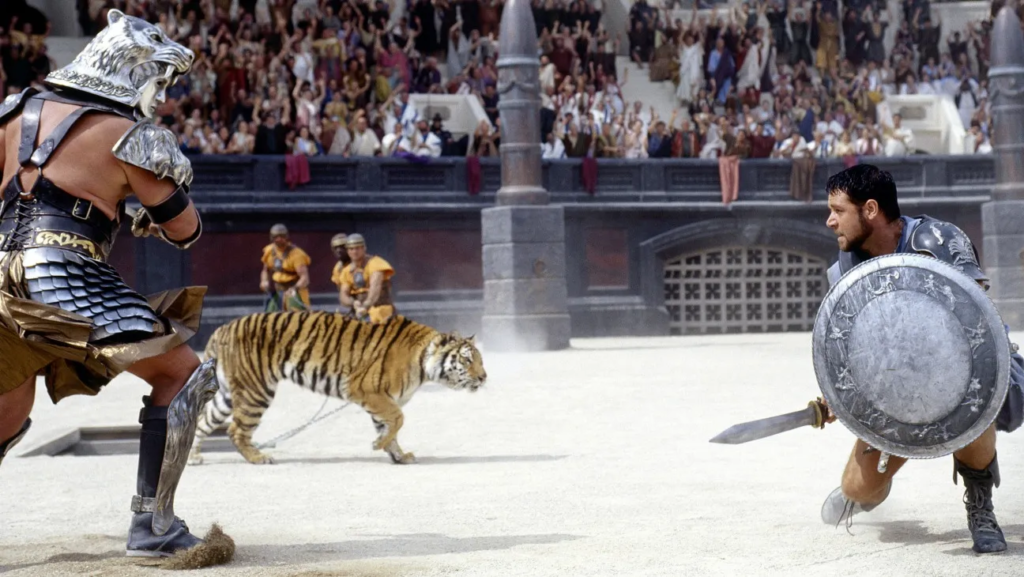
Some historical inaccuracies may irk purists, as the film takes creative liberties with its depiction of Roman history. Additionally, a few secondary characters are underdeveloped, and the narrative occasionally leans into predictable tropes. However, these issues are minor in the context of the film’s overall excellence.
Legacy
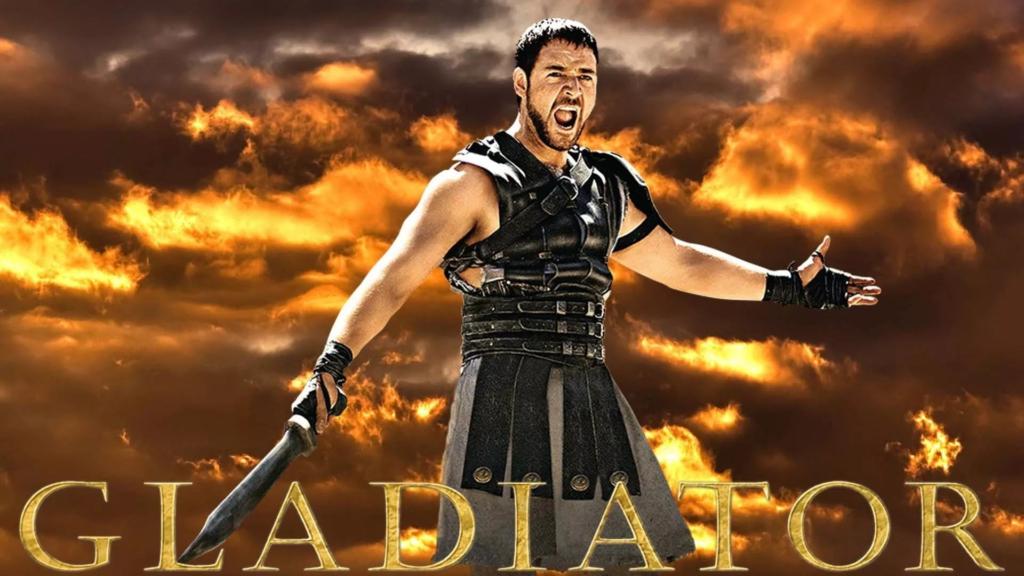
Gladiator was a critical and commercial triumph, reinvigorating interest in historical epics and influencing a wave of films and TV shows in its wake. Its iconic lines (“Are you not entertained?”) and unforgettable characters have secured its place in cinematic history.
Verdict
Gladiator is a sweeping, emotionally charged epic that masterfully balances action, drama, and character-driven storytelling. With powerful performances, stunning visuals, and a timeless story of resilience and revenge, it stands as one of the greatest historical dramas ever made.
Rating: 9.5/10
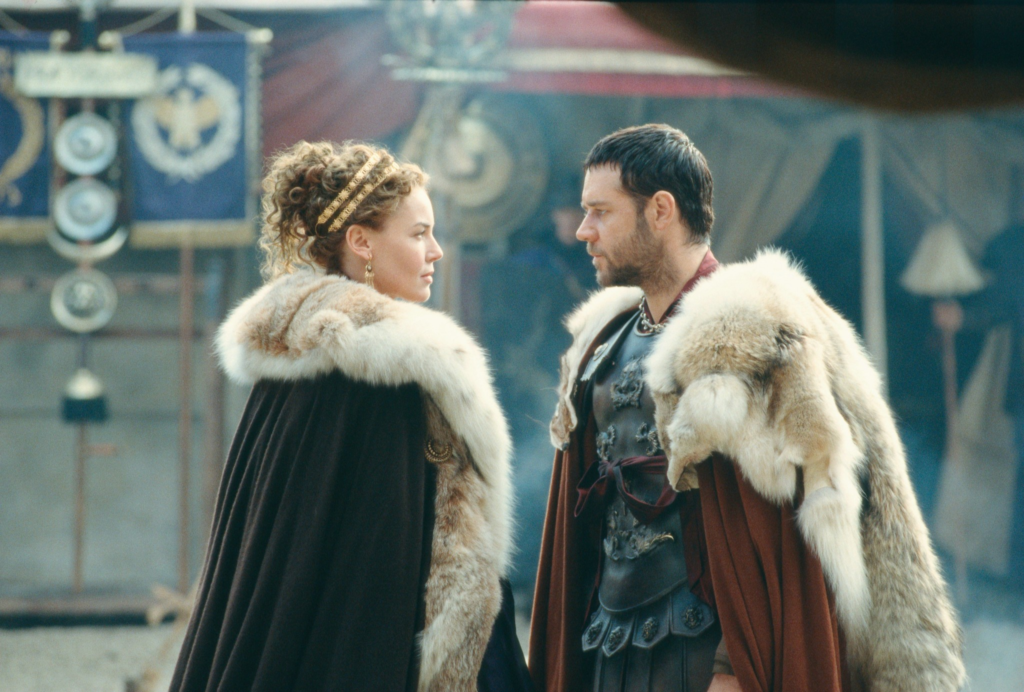
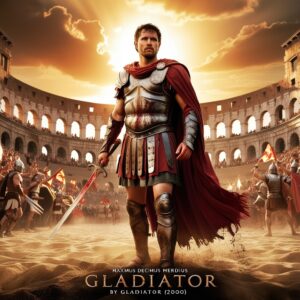
Leave a Reply